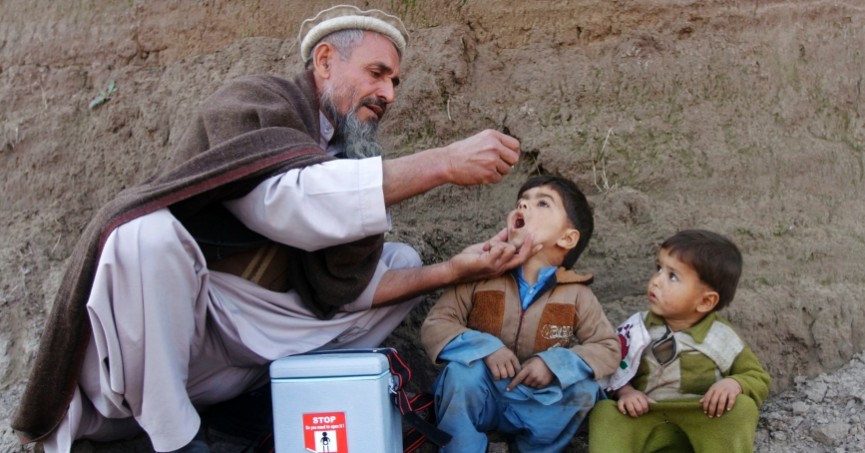Afghan children are facing several and severe challenges. They are the most deprived segment of the society. Little attention has been paid to their education. Children healthcare facilities are visible only on government papers, particularly in remote parts of the country. There is no denying that malnutrition and child mortality rate is much higher in Afghanistan than the neighboring countries. In addition to presence of insurgents and anti-education forces, polio virus is another serious threat to children. Fresh polio case emerged in Bermal district. After confirming the infectious disease, the country’s health ministry announced mass vaccination drive against polio.
The ministry which is rife with corruption will try to reach out to 9.5 million children less than five-year old. The four-day immunization campaign is aimed to cover the missing children. To some extent the announcement is welcoming. However, it will be a futile effort if polio drops were not administered to children living in insecure and remote areas. In the recent past, most of polio cases emerged in insecure areas of the country. Thus, reaching to children in areas controlled or contested by the militants is imperative. Thousands of children live in Nangarhar, Helmand, Paktia, Paktika, Kunduz, Badakhshan, Nuristan, Kunar and other insecure provinces. How the teams would administer polio drops to children in these provinces is still a mystery because no details were shared with media. But the ground realities suggest that it would be a tight rope walk. Not only the Taliban but Daesh fighters also have presence in Nangarhar, Logar and Paktika. Lack of support from the religious scholars and tribal elders in these provinces also add to the problem. It is still unclear that whether the clerics and local elders are under the pressure of militants or the authorities have not taken any step to engage them in the campaign for positive results. However, when the relevant authorities speak to media, they claim improved coordination with stakeholders including locals. But it is also true that realities are not reflecting the words of the concerned departments. The recent polio case clearly indicates that the public health ministry is caught between the rock and deep blue sea as it is far from the goals outlined by the UN bodies to fight the infectious disease. To get satisfactory results, the health ministry should contact the militants through the High Peace Council to allow the teams to immunize children in insecure areas. Insurgency shall not slow the pace of the anti-polio drive. Second, the ministry should engage the stakeholders including clerics and local elders on all levels. Input of religious scholars and tribal elders would give push to the immunization campaign.
 Afghanistan Times
Afghanistan Times




